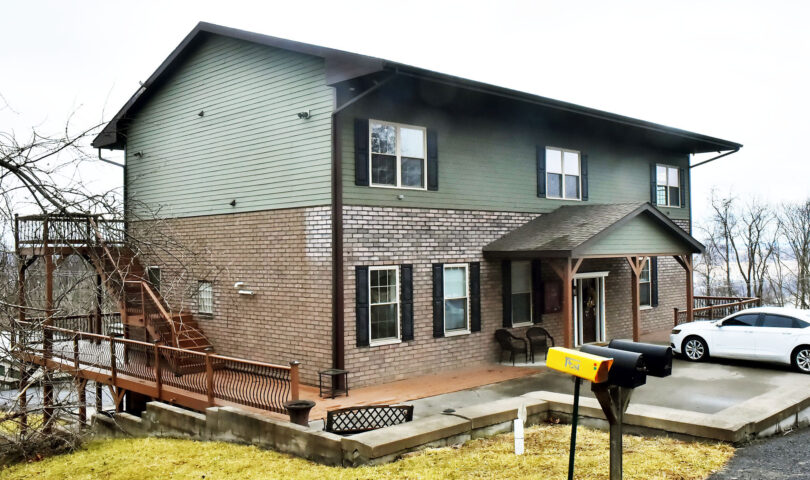MORGANTOWN — Milan Puskar Health Right Executive Director Laura Jones said the agency’s new home, at 10 Scott Ave., will be complete by late October.
On or near Nov. 1, the Morgantown Utility Board will finalize construction with the installation of an upgraded sanitary sewage connection.
“I would say, being cautiously optimistic, that absolutely by Jan. 1 we will be fully up and functional at the new building on Scott Avenue,” Jones told The Dominion Post. “We’re excited about how it’s taking shape. It’s nice. March-Westin is wonderful to work with.”
This whole process began in September 2021, when the city of Morgantown offered MPHR $800,000 in American Rescue Plan Act money if the nonprofit would agree to move both its free clinic and mental health drop-in center, Friendship House, out of downtown by March 31, 2023.
The Friendship House closed its doors at 231 Walnut St. in February 2023 and reopened three months later at 277 Don Knotts Blvd. with a new mission and a new name, Friendship Community in Recovery.
As for the clinic, Health Right purchased the Scott Avenue building and made plans to renovate the building, but cost estimates for that project came back more than $1 million beyond what the nonprofit had on hand.
The current working estimate of the total cost to turn the 6,000 square foot building, a stone’s throw from Hazel’s House of Hope, into a multi-faceted clinic and office space is $2,165,988.
But the project isn’t done. That number could fluctuate up or down as March-Westin’s work winds down.
Jones said the nonprofit is still in need of funds for ancillary things like the actual relocation process and furniture for the new site. Further, she said the MUB work was originally estimated at $30,000 but will cost closer to $100,000 because the building’s location will require a new pump station.
The sale of Health Right’s current home, at 341 Spruce Street, to Round Table “is going to happen” according to Jones but has taken significantly longer than originally expected.
Once that sale is complete, Health Right will pay $7,500 monthly to use the building until the move.
“We have contingency funds built into the budget, and we have spent all of those. With construction, there are always issues that come up that you don’t expect, but I believe we are very close to being fully funded,” Jones said.
The relocation approaches as the city’s downtown is once again in the spotlight for the wrong reasons.
The recent introduction of a citywide sleeping/camping ban has reignited a line of conversation about Health Right’s free clinic.
Is it at the heart of the problem? Does its harm reduction needle exchange promote drug use and lawlessness downtown? Will things change immediately after the move?
You could ask the city, but as the saying goes, money talks.
Morgantown has upped its contribution to the relocation effort from $800,000 in American Rescue Plan Act dollars to $1.1 million.
In September 2021, when the city first announced its ARPA plans, City Manager Kim Haws said the clinic would be far better suited on Scott Avenue, near social services hub Hazel’s House of Hope.
“The downtown is for shopping and for families together, and mental health services will be provided in one location,” he said.
The Monongalia County Commission is, thus far, invested to the tune of $200,000. The Hazel Ruby McQuain Charitable trust increased its support from $300,000 to $550,000 and the Milan Puskar Foundation has committed $300,000.
While Jones said she’s excited about the move and looking forward to what the future holds, she believes people may be disappointed if all the city’s problems downtown don’t disappear with them.
“I still don’t believe that all of the city’s problems with homelessness will be over when we move. I’ve never believed that. Our board doesn’t believe that,” Jones said.
“But we’re leaving. So, if this is going to be the panacea for the city of Morgantown, it will happen. There’s no question. We’re on our way out very soon … but I still don’t believe that it’s going to change everything that’s going on. It’s a downtown area. In the 24 years I’ve been here, we’ve always had people who were unhoused on the street.”




